We bring to the attention of our readers three videos pertaining to alleged roles of Petrov and Boshirov in the Skripal Affair.
Suggestion to our readers: view the CCTV and official UK police timeline videos prior to viewing the RT interview.
Notice that the two suspects pass through the corridor at exactly the same time and the same place at 16:22:43
Physically impossible. One would assume that they would be one behind the other which is not the case. Was the time stamp on the CCTV footage manipulated?
Complete Transcript
ALEXANDER PETROV: We are the people you saw.
RUSLAN BOSHIROV: I’m Ruslan Boshirov.
PETROV: And I’m Alexander Petrov.
SIMONYAN: These are your real names?
BOSHIROV: Yes, they are our real names.
SIMONYAN: But even now, frankly, you look very tense.
PETROV: What would you look like if you were in our shoes?
BOSHIROV: When your whole life is turned upside down all of a sudden, overnight, and torn down.

Source: Metroplitan Police / Global Look Press
SIMONYAN: The guys we all saw in those videos from London and Salisbury, wearing those jackets and trainers, it’s you?
PETROV: Yes, it’s us.
SIMONYAN: What were you doing there?
PETROV: Our friends have been suggesting for quite a long time that we visit this wonderful city.
SIMONYAN: Salisbury? A wonderful city?
PETROV: Yes.
SIMONYAN: What makes it so wonderful?
BOSHIROV: It’s a tourist city. They have a famous cathedral there, Salisbury Cathedral. It’s famous throughout Europe and, in fact, throughout the world, I think. It’s famous for its 123-meter spire. It’s famous for its clock. It’s one of the oldest working clocks in the world.
SIMONYAN: So, you travelled to Salisbury to see the clock?
PETROV: No, initially we planned to go to London and have some fun there. This time, it wasn’t a business trip. Our plan was to spend some time in London and then to visit Salisbury. Of course, we wanted to do it all in one day. But when we got there, our plane couldn’t land on its first approach. That’s because of all the havoc they had with transport in the UK on March 2 and 3. There was heavy snowfall, nearly all the cities were paralyzed. We were unable to go anywhere.
BOSHIROV: It was in all the news. Railroads didn’t work on March 2 and 3. Motorways were closed. Police cars and ambulances blocked off highways. There was no traffic at all – no trains, nothing. Why is it that nobody talks about any of this?
SIMONYAN: Can you give a time line? Minute-by-minute, or at least hour-by-hour, or as much as you can remember. You arrived in the UK – like you said, to have some fun and to see the cathedral, to see some clock in Salisbury. Can you tell us what you did in the UK? You spent two days there, right?
PETROV: Actually, three.
SIMONYAN: OK, three. What did you do for those three days?
PETROV: We arrived on March 2. We went to the train station to check the schedule, to see where we could go.
BOSHIROV: The initial plan was to go there for a day. Just take a look and return the same day.
PETROV: To Salisbury, that is. One day in Salisbury is enough. There’s not much you can do there.
BOSHIROV: It’s a regular city. A regular tourist city.
SIMONYAN: OK, I get that. That was your plan. But what did you actually do? You arrived. There was heavy snowfall. No trains, nothing. So, what did you do?
PETROV: No, we arrived in Salisbury on March 3. We wanted to walk around the city but since the whole city was covered with snow, we spent only 30 minutes there. We were all wet.
BOSHIROV: There are no pictures. The media, television – nobody talks about the fact that the transport system was paralyzed that day. It was impossible to get anywhere because of the snow. We were drenched up to our knees.
SIMONYAN: All right. You went for a walk for 30 minutes, you got wet. What next?
PETROV: We travelled there to see Stonehenge, Old Sarum, and the Cathedral of the Blessed Virgin Mary. But it didn’t work out because of the slush. The whole city was covered with slush. We got wet, so we went back to the train station and took the first train to go back. We spent about 40 minutes in a coffee shop at the train station.
BOSHIROV: Drinking coffee. A hot drink because we were drenched.
PETROV: Maybe a little over an hour. That’s because of large intervals between trains. I think this was because of the snowfall. We went back to London and continued with our journey.

Source: Metroplitan Police / Global Look Press
BOSHIROV: We walked around London…
SIMONYAN: So, you only spent an hour in Salisbury?
PETROV: On March 3? Yes. That’s because it was impossible to get anywhere.
SIMONYAN: What about the next day?
PETROV: On March 4, we went back there, because the snow melted in London, it was warm.
BOSHIROV: It was sunny.
PETROV: And we thought – we really wanted to see Old Sarum and the cathedral. So we decided to give it another try on March 4.
SIMONYAN: Another try to do what?
PETROV: To go sightseeing.
BOSHIROV: To see this famous cathedral. To visit Old Sarum.
SIMONYAN: So, did you see it?
BOSHIROV: Yes, we did.
PETROV: On March 4, we did. But again, by lunchtime, there was heavy sleet.
BOSHIROV: For some reason, nobody talks about this.
PETROV: So we left early.
SIMONYAN: Is it beautiful?
BOSHIROV: The cathedral is very beautiful. There are lots of tourists, lots of Russian tourists, lots of Russian-speaking tourists.
PETROV: By the way, they should have a lot of pictures from the cathedral.
SIMONYAN: Your pictures, you mean?
PETROV: They should show them.
SIMONYAN: I assume you took some pictures while at the cathedral?
PETROV: Of course.
BOSHIROV: Sure, we did. We went to a park, we had some coffee. We went to a coffee shop. We walked around, enjoying those beautiful English Gothic buildings.
PETROV: For some reason, they don’t show this. They only show how we went to the train station.
SIMONYAN: If you give us your pictures, we can show them. So, while you were in Salisbury, did you go anywhere near the Skripals home?
PETROV: Maybe. We don’t know.
BOSHIROV: What about you? Do you know where their house is?
SIMONYAN: I don’t. Do you?
BOSHIROV: We don’t either.
PETROV: I wish somebody told us where it was.
BOSHIROV: Maybe we passed it, or maybe we didn’t. I’d never heard about them before this nightmare started. I’d never heard this name before. I didn’t know anything about them.
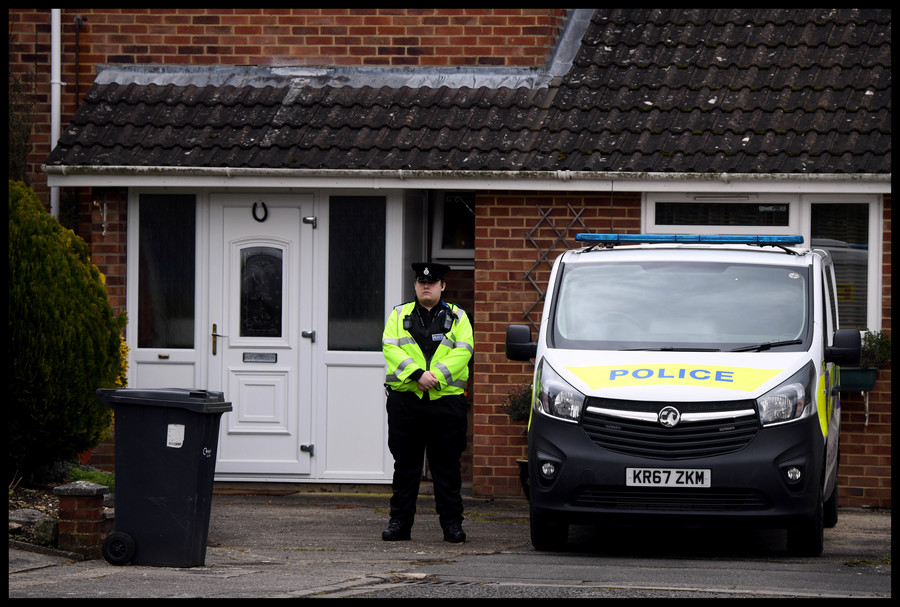
Police guard Sergei Skripal house in Salisbury. © Andrew Parsons/ZUMA Press/Global Look Press
SIMONYAN: When you arrived in the UK, when you were in London or in Salisbury, throughout your whole trip, did you have any Novichok or some other poisonous agent or dangerous substance with you?
BOSHIROV: No.
PETROV: It’s absurd.
SIMONYAN: Did you have that bottle of Nina Ricci perfume which the UK presents as evidence of your alleged crime?
BOSHIROV: Don’t you think that it’s kind of stupid for two straight men to be carrying perfume for ladies? When you go through customs, they check all your belongings. So, if we had anything suspicious, they would definitely have questions. Why would a man have women’s perfume in his bag?
PETROV: Even an ordinary person would have questions. Why would a man need perfume for women?

Counterfeit perfume box found by Charlie Rowley on 27 June. © Metropolitan Police
SIMONYAN: How would it be possible for someone to find any perfume bottle on you?
BOSHIROV: I mean, when you go through customs…
SIMONYAN: Long story short, did you have that Nina Ricci bottle or not?
BOSHIROV: No.
PETROV: No, of course not.
SIMONYAN: Speaking of you being straight men, all the footage features you two together. You spent time together, you stayed together, you went for a walk together. What do you have in common that you spend so much time together?
BOSHIROV: You know, let’s not breach anyone’s privacy. We came to you for protection, but this is turning into some kind of an interrogation. You are going too far. We came to you for protection. You’re not interrogating us.
SIMONYAN: We are journalists, we don’t protect. We aren’t lawyers. In fact, this was my next question. Why did you decide to go to the media? Your photos were published some time ago together with your names, but you kept silent. But then today you called me, because you want to speak to the media. What’s changed?
BOSHIROV: To ask for protection.
PETROV: You say we kept silent. After, our lives turned into a nightmare, we didn’t know what to do, where to go. The police? The Investigative Committee? The UK embassy?
BOSHIROV: Or the FSB. We don’t know.
SIMONYAN: Why would you go to the UK embassy?
PETROV: We really didn’t know what to do. Where to go? Hello?
BOSHIROV: You know, when your life is turned upside down, you don’t really understand what to do and where to go. And many say, why don’t they go to the UK embassy and explain everything?

Source: Metroplitan Police / Global Look Press
SIMONYAN: And you know what they are saying about you, right?
PETROV: Of course we do.
BOSHIROV: Yes, of course. We can’t go out on the street because we are scared. We’re afraid.
SIMONYAN: What are you afraid of?
BOSHIROV: We fear for our lives. And for the lives of our families and friends.
SIMONYAN: So, you fear that the UK secret service will kill you or what?
BOSHIROV: We just don’t know.
PETROV: Simply read what even the Russian media is writing. They are offering a reward.
SIMONYAN: What do you mean? There’s a bounty on your head?
BOSHIROV: Dmitry Gudkov, if I am not mistaken, promised a trip to the UK for anybody who brings us to him. Do you think that’s okay? And you think we can feel just fine, walking around smiling, talking to people? Any sensible person would be afraid.
SIMONYAN: Why did you call me of all people? Why did you contact RT?
BOSHIROV: We were reading the news today, your Telegram channel.
SIMONYAN: Now I know people read it.
PETROV: You said it yourself. I don’t know whether I can mention this on air.
SIMONYAN: Just say it. If it’s something we can’t say, we’ll take it out.
PETROV: “Let’s go bastards,” you wrote.
SIMONYAN: Oh, that. I wrote, “Go to the back of the line, you bastards,” [meaning other media]. [This is a quote from Mikhail Bulgakov’s novel Heart of a Dog.]
BOSHIROV: Yes. So, after we saw that, we decided to call you.
SIMONYAN: Vladimir Putin appealed to you today, saying that they have identified you and that you should contact the media. If it hadn’t been for Putin, would you have contacted us?
PETROV: Margarita, you know, probably we would’ve recorded a video and put it on the Web.
SIMONYAN: You would’ve recorded a video and posted it?
PETROV: We don’t have any experience with the media. It would’ve been easier for us to lay it all out online.
BOSHIROV: To ask for protection, for help.
PETROV: Today, we haven’t watched it live, but I heard it on the radio and suggested that we do it.
BOSHIROV: Yes, it gave us an impulse.
PETROV: And so we called you.
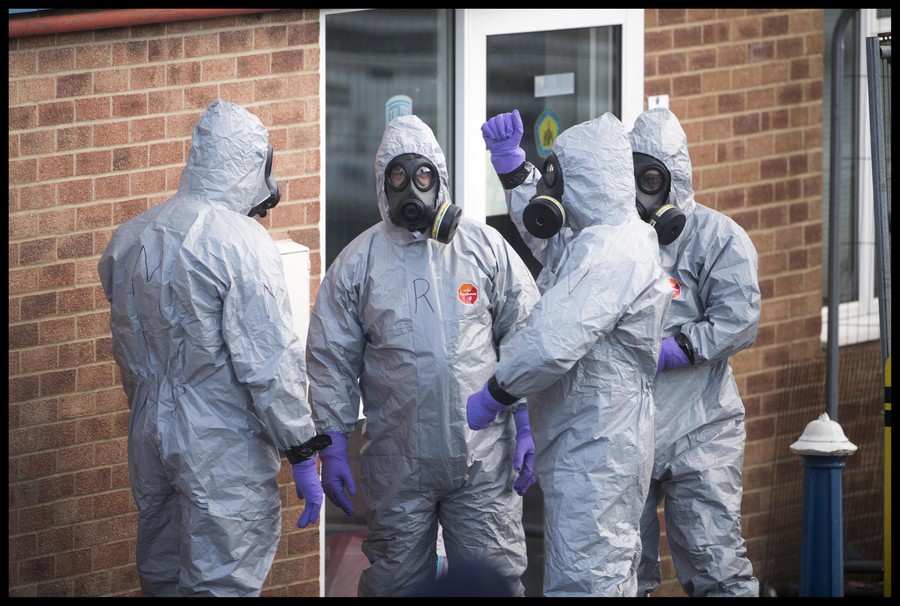
Forensics Police officers investigating Ashley Wood Garage in Salisbury, where Skripol car was taken following the attempted murder. © I-Images/Global Look Press
SIMONYAN: Do you work for the GRU?
PETROV: And you, do you?
SIMONYAN: Me? No, I don’t, and you?
PETROV: I don’t.
BOSHIROV: Me neither.
SIMONYAN: Well, no one accuses me of working for the GRU, right? It’s different with you two.
BOSHIROV: And these are your colleagues who accuse us.
SIMONYAN: By my colleagues, you mean journalists, right? You are being accused by British law enforcement. They say you work for the GRU.
PETROV: This is the worst.
SIMONYAN: What do you do then? You’re two adults, you must be working somewhere.
PETROV: We are businessmen. We have a medium-sized business.
SIMONYAN: What does that mean?
PETROV: If we tell you about our business…
BOSHIROV: …This will affect the people we work with. We don’t want this to happen.
SIMONYAN: Tell us at least something. Do you want people to believe you or not? For many months, they’ve been trying to make people believe in the opposite of what you say. Some believe you, some don’t. If you say you don’t work for the GRU but you refuse to talk about your business, I have questions, and our audience will have questions too…if you are not GRU, not spies, never poisoned anyone, and you went there simply as tourists. So, what is it you do?
PETROV: Very briefly, we work in the fitness industry. Supplements for athletes, vitamins, minerals, proteins, gainers, and others. If we give you any further details, this may affect our partners and people we know.
SIMONYAN: You are sweating, let me turn on the AC.
BOSHIROV: Yes, thanks.
PETROV: It’s hot.
SIMONYAN: So, you are in the fitness industry. So, do you consult with people in Europe who want to build muscle?
PETROV: Yes.
SIMONYAN: So, what you do in Europe is advise those who want to get bigger biceps or what?
PETROV: Why in Europe?
SIMONYAN: Well, this is going to be my next question, but first I would like you to answer this one.
PETROV: I advise them here [not in Europe].
SIMONYAN: Here?
PETROV: Right. Actually, advice on how to build up your biceps is not as trendy now – body shaping is… so-called “drying out” (dehydration), living healthy and eating proper.
BOSHIROV: Eating properly, healthy lifestyle…
SIMONYAN: So, you help your clients to achieve a beautiful body or work in fitness clubs… You are a coach then.
PETROV: Pretty much yes.
BOSHIROV: We wouldn’t like to go public on this or provide further details about our work and all that. I just don’t want this story to affect our clients, people we work with. I don’t wish to elaborate.

Source: Metroplitan Police / Global Look Press
SIMONYAN: Okay. The British say that you have made a lot – if not dozens – of visits to Europe in the last couple of years, Switzerland being named as your primary destination. What business could you have there as fitness coaches and physical trainers?
BOSHIROV: The British say all kinds of things…
SIMONYAN: So you didn’t go to Europe?
BOSHIROV: The hotel room that they show and say we stayed in has a bed for one person only. Meanwhile, right next to it there are double and triple rooms. And it is perfectly normal for tourists to stay together in a double room. It saves money and it’s practical. It’s more fun that way and it’s also easier. There’s absolutely nothing wrong with this.
SIMONYAN: There is no need to make any excuses here. Frankly, the world couldn’t care less about that. So, have you been to Europe in the last couple of years?
BOSHIROV: Sure.
PETROV: Yes. Mostly on business trips.
SIMONYAN: Which took you mostly to Switzerland?
PETROV: Yes, and once again…
SIMONYAN: So it’s true?
PETROV: No, not mostly to Switzerland…
BOSHIROV: They exaggerate this… the number…
PETROV: If memory serves me well, we had just a couple of trips to Switzerland. We spent some time during the New Year holidays there.
SIMONYAN: But what were you doing there? What does it have to do with your business? I know you don’t want to expose your clients, but what does your business have to do with Switzerland?
PETROV: Our trips are not always business-related. We went to Switzerland on holiday. We did have some business trips there as well, but I can’t really remember when it was…
BOSHIROV: It’s perfectly normal to go to Geneva. It’s the shortest route to Montblanc. You can go to France – it’s just a few kilometres away. It’s convenient.
SIMONYAN: So what was it: a business trip or a holiday trip?
PETROV: We had both kinds of trips, business mostly.
SIMONYAN: And what does your business have to do with Europe?
PETROV: It’s about healthy food, products and vitamins that they sell in Europe.
SIMONYAN: So, you purchase food there and then bring it here?
PETROV: It’s not about buying it and bringing it over here in bags. We study the market for new products, including biologically active food supplements, amino acids, vitamins and microelements. Then we come back and decide what we need the most and try to figure out how these new products can be shipped over here. This is an area of our work.
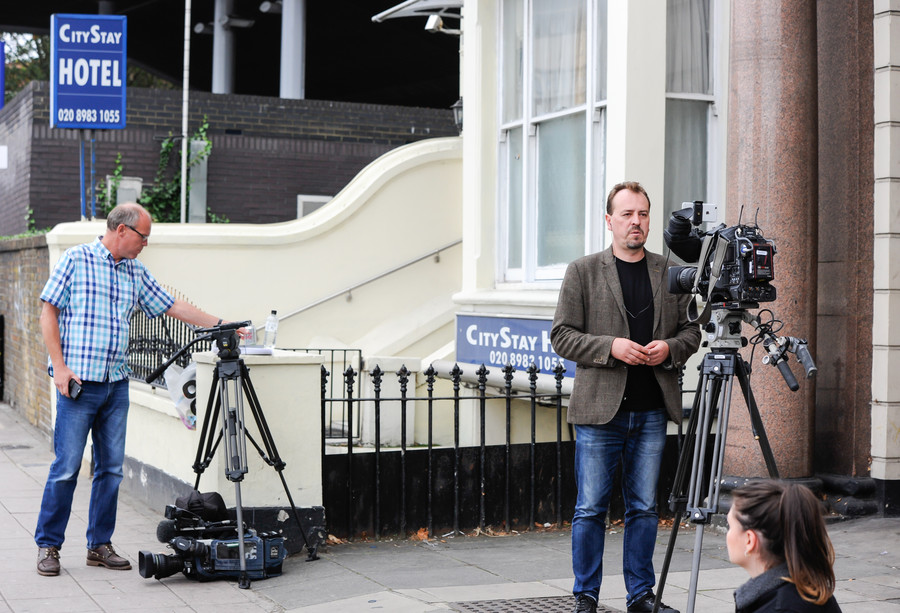
The Metropolitan Police confirmed traces of Novichok were found in the two-star hotel after being tested at Porton Down. © Gustavo Valiente / Global Look Press
SIMONYAN: I’ve got some screenshots in this little file here. Is this you?
BOSHIROV AND PETROV: Yes. Right.
SIMONYAN: Do you recognize your clothes?
BOSHIROV AND PETROV: Yes.
SIMONYAN: And now you’re wearing different clothes, right?
PETROV: Yes, but…
BOSHIROV: …we left it…
PETROV: …in the wardrobe…
BOSHIROV: …that’s right, I have that jacket in my wardrobe…
PETROV: Those shoes were bought in England, the jacket…
BOSHIROV: …well-advertized New Balance sneakers. We still wear all that.
SIMONYAN: And you’ve got it all here, in Russia?
PETROV: Here you’re wearing the shoes you bought in Oxford Street, if my memory serves me right…
BOSHIROV: Yeah, I did, and it was on the third, by the way…
PETROV: Because when we got wet on the third…
BOSHIROV: We got wet on the third…
PETROV: We got back to London and did bit of shopping…
BOSHIROV: Yeah, we got new shoes. I went and bought new shoes and the next day I was wearing a different pair.
SIMONYAN: And you’ve got all those clothes in Russia now?
BOSHIROV: Yes.
PETROV: Of course.
BOSHIROV: Sure, we can show them to you.
SIMONYAN: You haven’t got any of those clothes just now, by any chance, have you?
BOSHIROV: I have – I’ve got the jacket. I’ve got it here.
PETROV: That one?
BOSHIROV: Yeah. I’ve got it here.
PETROV: I’ve got them all in the wardrobe back at my place.
SIMONYAN: Right. Here’s the photo that’s got the whole world puzzled. Gatwick. You’re going through the gate at the same time, even at the same second. How do you explain that?
BOSHIROV: I think it’s for them to explain.
PETROV: How can we explain it?

CCTV images of Petrov and Boshirov at Gatwick airport on 2 March 2018.
BOSHIROV: We always go through the gate together. Through the same gate, with the same customs officer. One after another. We walked through that corridor together. We’re always together. As to how it happened – us walking there at the same second and then separately – I think it’s a question that should be put to them.
PETROV: Yeah, on the point of us always going through it together – my English is a bit better, so if any problem crops up, I’m there to help Ruslan out.
SIMONYAN: So you went through together? You didn’t take different corridors?
PETROV: No, we never go through separately.
BOSHIROV: No, never.
SIMONYAN: So what about these photos then? You say it never happened? Or were they doctored?
BOSHIROV: Well, I don’t really know…
PETROV: It’d be a good thing if we could actually remember it…
BOSHIROV: … how they do these things over there. When you arrive at an airport, or leave one, when you go somewhere or other, you never think about the cameras… There’s nothing interesting about them. How they film, or what, or where – I’m not interested in any of that and so I never took any notice. Given that it was them who published these photos with this time on them and all, I think the best thing to do would be to ask them.
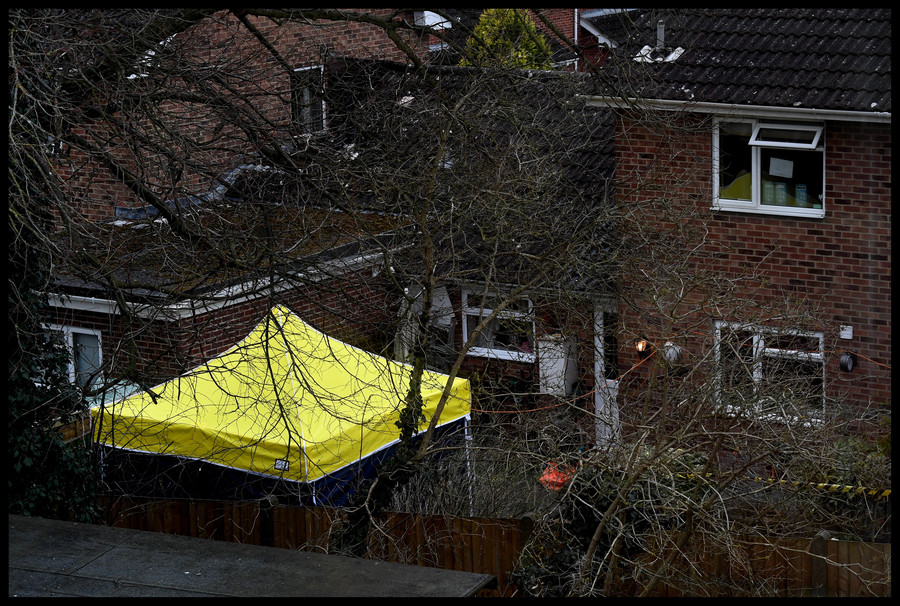
A tent is erected in the garden of Sergei Skripal house in Salisbury. © Andrew Parsons/Zuma Press/Global Look Press
SIMONYAN: What are your thoughts on this whole Skripal case? Who poisoned him? You ever thought about it at all?
PETROV: Well, it’s hard to say… As to whether we’re thinking about it…
SIMONYAN: I mean before you saw your photos on TV.
PETROV: We’re living it. I’ll say one thing, though…
BOSHIROV: I think for the time being I’ll…
PETROV: If they ever find the ones who did it, it’d be nice if they at least apologized to us.
SIMONYAN: Who? The poisoners?
PETROV: Even considering the fact…
BOSHIROV: No, the British.
PETROV: Even considering the fact that all this time we – how long have they been going on about it all now? Five days, a week? I’ve lost count of time. I mean, I’m really…
BOSHIROV: You have no idea what it’s done to our lives…
PETROV: Can’t even go and fill up your car in peace…
BOSHIROV: What it’s done to your lives…
SIMONYAN: People recognize you that often?
PETROV: Well, we think they do. How else can we feel when they keep showing our photos on TV?
BOSHIROV: Every day. Full-screen. Our two photos.
PETROV: It’s scary…
BOSHIROV: You turn on the radio and it goes ‘Boshirov, Petrov’. You turn on the TV – same thing. What would your life be like under these circumstances? I’m frightened, I’m scared… I don’t know what to expect tomorrow. That’s why we’ve come to you.
PETROV: I try not to watch any news now. He still does though, and I just ask him sometimes, ‘Well, anything new?’ and I expect to hear ‘no, it’s all the same’ but he goes, ‘Yeah, plenty’ – they keep making it worse and worse. How much longer can it go on?
SIMONYAN: What are you going to do now?
PETROV: No idea. We simply want to be left in peace.

Source: Metroplitan Police / Global Look Press
SIMONYAN: Aren’t you now on a travel blacklist? I mean, if you leave Russia you will most likely get arrested.
PETROV: Well, we hope that the situation can be resolved.
BOSHIROV: Yes, we want it to be resolved, for the British side to apologize for all this mess, for the real culprits in the Skripal case to be found, and for our lives to change for the better.
PETROV: The whole situation is some kind of extraordinary coincidence – that’s all. What are we guilty of?
BOSHIROV: We simply would like to be left in peace right now, at least for a little while. We want everybody to calm down.
PETROV: At least our media, your colleagues.
SIMONYAN: ‘Our’ meaning Russian?
BOSHIROV: We want to live peacefully for a while.
PETROV: We kind of realize what will happen after this interview.
BOSHIROV: Well, I don’t know what will happen tomorrow.
PETROV: In any case, we will have to…
SIMONYAN: You’ll become talk show stars!
PETROV: That’s not what we want. One just wants to hide and sit it all out.
BOSHIROV: So that they get off our backs.
PETROV: We certainly don’t want publicity of that sort.
BOSHIROV: We simply wish to be left alone.
PETROV: We’re sick and tired of all this.
BOSHIROV: Exhausted.
PETROV: If it is possible, please, everybody leave us alone. That’s all. You’re our way of getting this word out to everybody, including your fellow journalists. Even if somebody recognizes our faces (since we can’t simply stay at home, we have to go out in public), dear friends, please, don’t grab your phones… I don’t know what to say… We simply want some peace. I understand that we won’t return to normal life as soon as we would like to…
BOSHIROV: But we at least don’t want to be pestered right now.
SIMONYAN: Thank you. Thank you for coming here, to RT.
BOSHIROV: Thank you for hearing us out.
PETROV: Thank you very much.


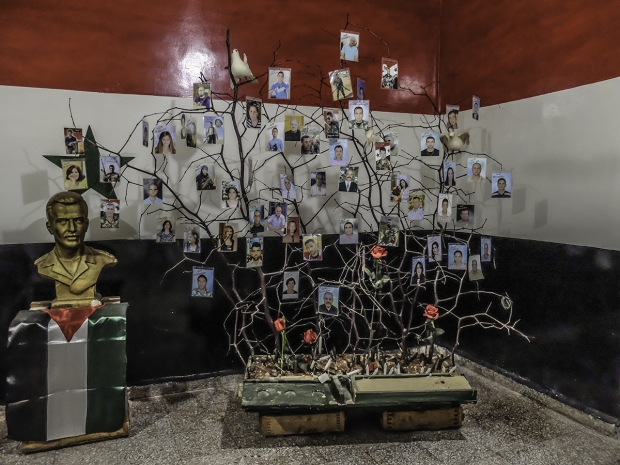



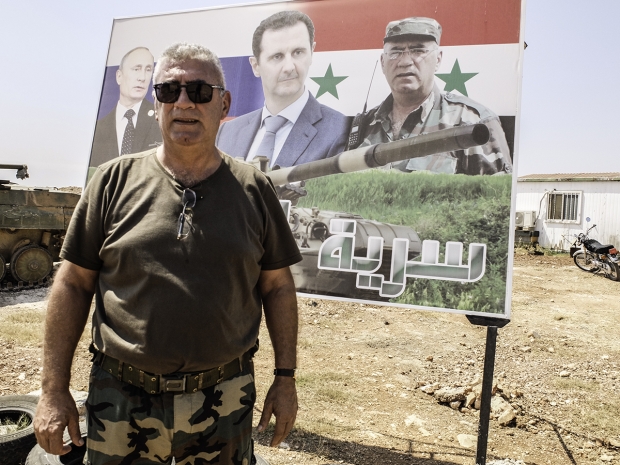




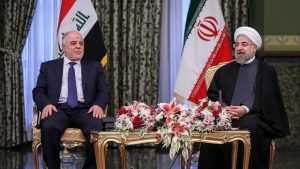


















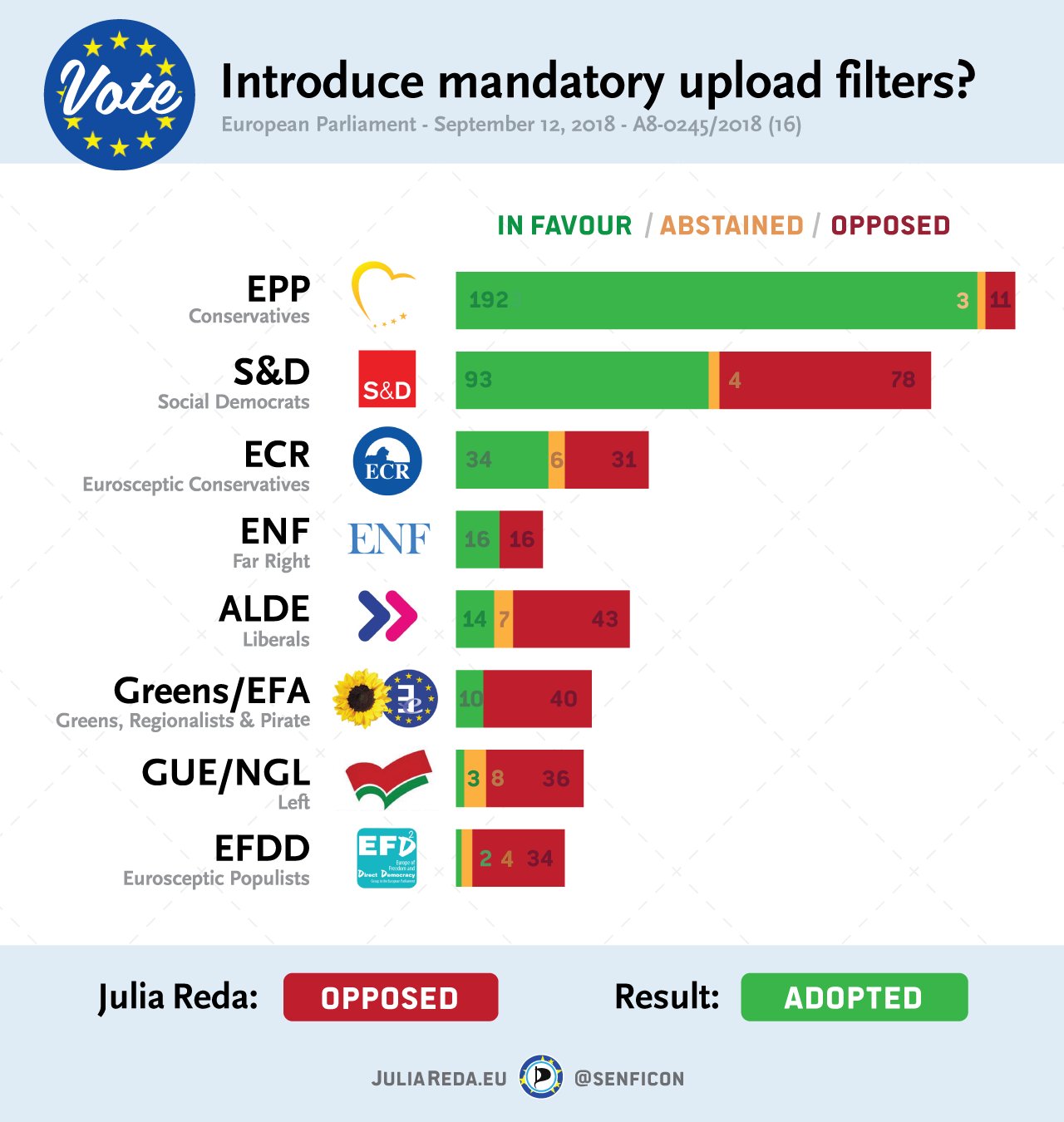


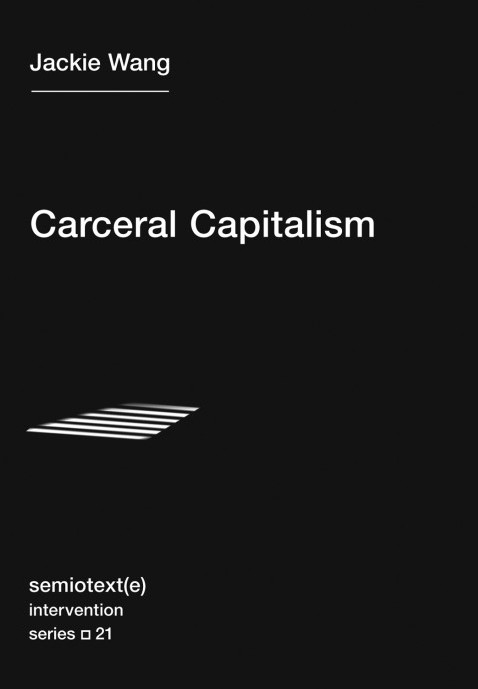

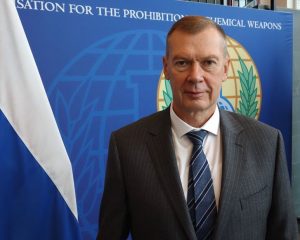
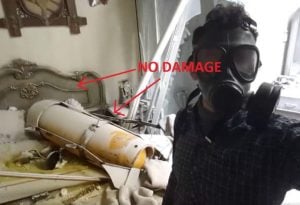
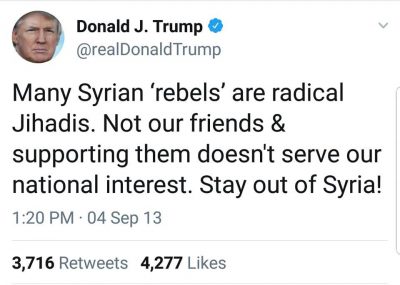

![Fear: Trump in the White House by [Woodward, Bob]](https://images-na.ssl-images-amazon.com/images/I/416N358DJfL._SY346_.jpg)































